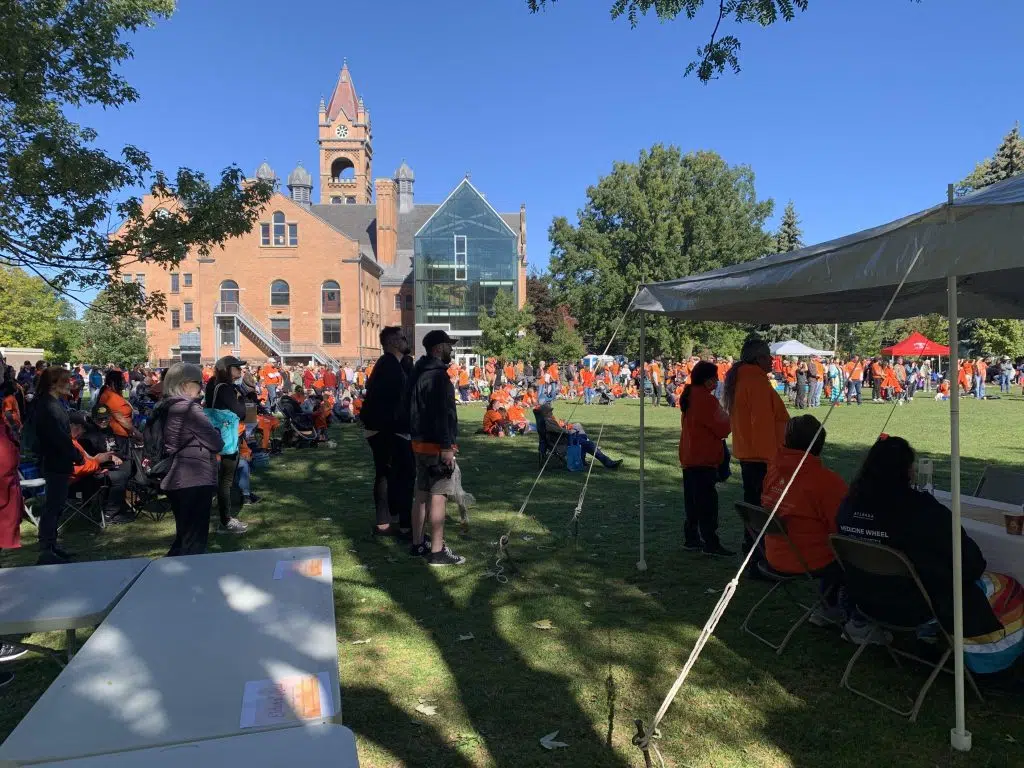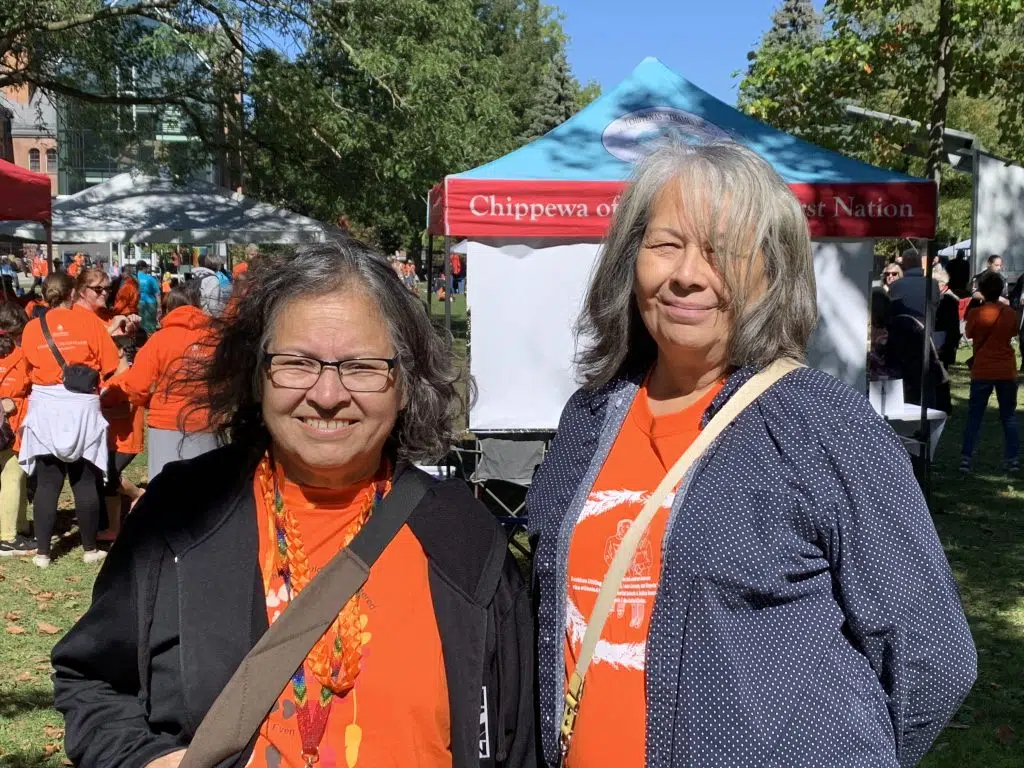On the National Day of Truth and Reconciliation amidst the sacred performance of the jingle dancers and the smell of burning sage, a practice called smudging that is meant to purify or bless an area, survivors of the residential schools in Canada and their relatives gathered together for a day of healing.
For Gina McGahey of the Chippewas of the Thames First Nations it is a time to come to terms with their past.
“It’s about coming to terms with it in our present day life and moving forward,” says McGahey. “As well as beginning the journey of getting back what we’ve lost over time.”
She is talking about their culture that the residential schools were historically created to replace in an attempt to assimilate them. Recognizing that is what the National Day of Truth and Reconciliation is all about.
She was at a booth about the Mount Elgin Indian Residential School, also known as the Muncey Institute, which closed in 1946.
“What we’re trying to do is save the last remaining barn of the school,” she says. “That barn is so important because it’s a reminder of our past because a lot of the children etched their names into the beams of that barn and the years that they were there. Sometimes they would leave messages.”

Residential school survivors, their families and allies at the Green in Wortley Village for the National Day of Truth and Reconciliation. (Mike Lacasse/XFM)
You can’t believe some of the things they had to go through. Starvation, bullying, abuse. You don’t want to know that children went through that kind of life.
– Gina McGahey of the Chippewas of the Thames First Nations
McGahey says the Chippewas of the Thames First Nations wants to open up a museum on the lands where the school used to stand.
“Survivors always told us to never, ever, forget what happened,” she says. “And this is to honour their legacy.”
It is so important to her not only because of its connection to her people but also because she says she met with and spoke to survivors of the school who shared their stories with her.
“It touches you emotionally. Even thinking of some of the stories they went through. You can’t believe some of the things they had to go through,” she says. “Starvation, bullying, abuse. You don’t want to know that children went through that kind of life.”

Gina McGahey and Nancy Deleary of the Chippewas of the Thames First Nations at Wortley for the National Day of Truth and Reconciliation. (Mike Lacasse/XFM News)
While the Federal Government declaring a National Day of Truth and Reconciliation is a step towards healing, McGahey says that still more needs to be done.
“I don’t know if you could ever say there is enough,” says McGahey. “I am an intergenerational survivor. I had a grandmother that went to the residential school.”
As a former teacher at Kettle Point Elementary School, McGahey is heartened by the amount of Indigenous people who want to learn about, and reclaim, their heritage and culture. She says that the increased interest among the younger generations especially brings her hope.
“I’ve walked this journey for many moons now and I’m going to say that within the past five years there’s been a stronger movement than I’ve ever seen,” she says. “I consider myself as one of the ‘lost generations’. The ones that lost their culture, their language. Now I see a movement, and this movement is giving everyone an understanding on who we are as First Nation people.”
“We are moving in that direction. It’s going to take us a while to get there, but we will. I don’t know if I’ll be on this planet when it happens but it’ll get there.”





Comments